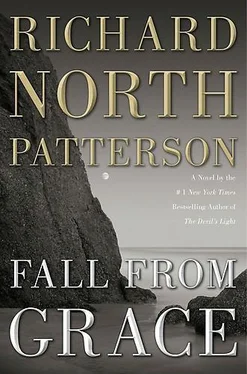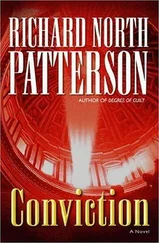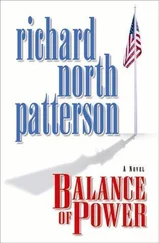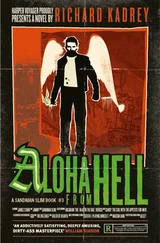Richard Patterson - Fall from Grace
Здесь есть возможность читать онлайн «Richard Patterson - Fall from Grace» весь текст электронной книги совершенно бесплатно (целиком полную версию без сокращений). В некоторых случаях можно слушать аудио, скачать через торрент в формате fb2 и присутствует краткое содержание. Жанр: Триллер, на английском языке. Описание произведения, (предисловие) а так же отзывы посетителей доступны на портале библиотеки ЛибКат.
- Название:Fall from Grace
- Автор:
- Жанр:
- Год:неизвестен
- ISBN:нет данных
- Рейтинг книги:5 / 5. Голосов: 1
-
Избранное:Добавить в избранное
- Отзывы:
-
Ваша оценка:
- 100
- 1
- 2
- 3
- 4
- 5
Fall from Grace: краткое содержание, описание и аннотация
Предлагаем к чтению аннотацию, описание, краткое содержание или предисловие (зависит от того, что написал сам автор книги «Fall from Grace»). Если вы не нашли необходимую информацию о книге — напишите в комментариях, мы постараемся отыскать её.
Fall from Grace — читать онлайн бесплатно полную книгу (весь текст) целиком
Ниже представлен текст книги, разбитый по страницам. Система сохранения места последней прочитанной страницы, позволяет с удобством читать онлайн бесплатно книгу «Fall from Grace», без необходимости каждый раз заново искать на чём Вы остановились. Поставьте закладку, и сможете в любой момент перейти на страницу, на которой закончили чтение.
Интервал:
Закладка:
Behind them, he heard voices in the night. On the rise that descended to the water, four more fishermen appeared, wearing boots and carrying fly rods, their outlines backlit like some shadowy militia come to occupy the beach. When Adam tried this simile on his father, Ben replied, “I may steal that from you, son. Did you ever consider writing yourself?”
“Compete with you? No thanks.”
Ben looked at him sharply. “If you’re afraid of that, all the more reason to try: fear exists to be mastered, not bowed to. Still, maybe you’re right-where is it written that you can do what I’ve done? And I can hardly blame you for choosing your own path. Thank God I didn’t follow my old man like he followed his.”
Though he could not see Ben’s face, Adam heard a note of satisfaction mixed with dread, as though Nathaniel Blaine might still pull Ben by the collar into the life he had fought to escape. “What was he like?” Adam asked. “I can’t remember much.”
“Limited,” Ben said flatly. “They all were. Granted, they had a certain mulish persistence that might have passed for character-through a century of lobstering, they stuck with it, no matter how hard the life. Their problem was tunnel vision. Each took those same traits of character and did the exact same thing, generation upon generation. From the age of five, I set out to be different.”
Something in Ben’s claim of uniqueness nettled Adam. “So did Jack,” he said.
Ben laughed under his breath. “Jack? All he managed was getting out of the water.”
It was always like this, Adam thought-his father determined to have him perceive his uncle as smaller than Ben himself. “He did more than that, Dad. Jack’s woodworking is special. He’s an artist, like Teddy.”
“Yes,” Ben answered tartly. “On a rock off the coast of Massachusetts, fifty square miles. This is a place to come back to, not to define the boundaries of a life. The world has too much to offer.”
Adam felt the familiar stab of ambivalence mixed with admiration. His father was ever on the lookout for places that bared the nature of man at its noblest and most terrible-in Vietnam, Cambodia, Kosovo, Nigeria, the West Bank, Lebanon, the Sudan. He had embedded himself with American troops during the Gulf War, followed the Afghan rebellion against the Soviets, forging lifelong bonds with a legendary operative for the CIA. It was as though he were engaged in a worldwide game of dare-danger, tragedy, and war had always drawn Benjamin Blaine.
But equal to Ben’s hunger for experience was his iron will to record it with merciless clarity. “Whatever you do,” his father continued, “dream big, take risks, and work harder than whoever else is doing the same thing. Do you know why I’ve succeeded? Not because of talent-I’ve known writers more gifted than I am. But I was driven to wring every molecule out of whatever talent I possessed. Success is not something you aspire to-you have to grab it by the throat.
“There’s a story about Bobby Kennedy I’ve always loved. When Bobby was attorney general, he set out to jail the crook who ran the Teamsters, Jimmy Hoffa. One night Bobby worked on the Hoffa case until two a.m. Driving home, he passed the Teamsters Building, and saw the light on in Hoffa’s office. So he turned around and drove back to work.” Chuckling with fondness for the image, Ben concluded firmly, “There’ll be people better and smarter than you, Adam. There always are. Your strength must be to want it more, and let nothing get in the way. They called Robert Kennedy ruthless. But for a few months before he died, when I joined his campaign, I knew Bobby very well, and I can tell you he was most ruthless with himself. That’s how you should be.”
In this story, Adam knew, lay a key to his father’s psyche, part of which was his deep admiration-even love-for Robert Kennedy. But he could as easily have recounted his night on Chappaquiddick, fly-fishing in a bitter wind that drove his competitors off the beach. Ben held out until dawn, lips blue with cold, at last catching a forty-three-pound bass that set a world record. But the best example was his writing. No doubt Ben was ruthless there-Adam firmly believed he could bury his wife and sons in the morning, and write a chapter in the afternoon. No writer could steal the march on Benjamin Blaine.
Now, ten years later, Adam stared at his father’s final work.
Where is it written that you can do what I’ve done?
Reading on, Adam felt anew the full weight of those words. Ben could not stand the thought of anyone besting him-especially Adam, the one most like him, the one he had always feared. And now this.
On the page, the language revealed Ben’s deterioration. Now and again a lucid, vigorous passage evoked Benjamin Blaine as readers knew him. But the last pages were so poorly written that they resembled Cliffs Notes of the novel that might have satisfied his father. The man Adam had known would have ripped them up in disgust. Unless he had been so rushed or drunken or impaired that he had not paused to read the story of his own decline.
Adam forced himself to finish.
The story was set in the nineteenth century, its principal characters a family of lobstermen. Though incomplete, the narrative focused on the father’s fraught and ultimately tortured relationship with his younger son, the subject of its most piercing passages. At times, the son resembled Adam; at other times, Ben himself. There was similar confusion between Ben’s father as Adam understood him and the father Adam himself had known. Though the pages ended abruptly, marking his father’s death, Adam could grasp the tragedy ahead. By the end of this novel, he understood, one of these men, father or son, was meant to kill the other.
Part Two
One
The next afternoon, Adam met Matthew Thomson at the trailhead of the Menemsha Hills nature preserve.
His father’s personal lawyer was much as he remembered him-a lean, puckish figure with wire-rimmed glasses, curly iron-gray hair, and a humorous play around the mouth and eyes that hinted at intelligence, irreverence, and an unvarnished view of humanity. The meeting place suggested Thomson’s love of outdoor exertions: in his youth, he had been a distance runner, and he retained the sinewy, stringy look of someone wedded to diet and exercise. As they shook hands, Thomson said, “Jesus, you look like him. I guess everyone tells you that.”
“Everyone does.”
Thomson looked at him more closely. “Left you a mess, didn’t he? Let’s walk a little and review the wreckage.”
There was something bracing, Adam found, about the lawyer’s disinclination toward expressions of sentiment. He recalled his father’s appraisal of Thomson: “a first-rate brain unfettered by illusions.” Together, they headed into the woods, the older man setting a brisk pace.
The trail was as Adam recalled it, a winding path through oaks and maples that admitted patches of sunlight, enveloping them in a hush punctuated by the cries of birds. “I’m not a religious man,” Thomson observed, “so this is the nearest I come to church, a place to reflect and appreciate what we’ve been given on this island.” He glanced sideways. “But you’re wanting to talk about what Ben took from your mother. I suppose Clarice mentioned that I was as shocked as she was.”
“She did. Which makes me wonder when you last met with him.”
“Concerning his estate? Not quite a year ago. We reviewed his will and decided that nothing needed to change. At that point, the estate-including the house-was worth about twelve million. Ample to provide for Clarice and preserve a chunk for Teddy when she goes.”
Hearing this made Adam wish anew that he could reach back in time, changing his father’s last year. “Did he say anything about another estate plan?”
Читать дальшеИнтервал:
Закладка:
Похожие книги на «Fall from Grace»
Представляем Вашему вниманию похожие книги на «Fall from Grace» списком для выбора. Мы отобрали схожую по названию и смыслу литературу в надежде предоставить читателям больше вариантов отыскать новые, интересные, ещё непрочитанные произведения.
Обсуждение, отзывы о книге «Fall from Grace» и просто собственные мнения читателей. Оставьте ваши комментарии, напишите, что Вы думаете о произведении, его смысле или главных героях. Укажите что конкретно понравилось, а что нет, и почему Вы так считаете.












